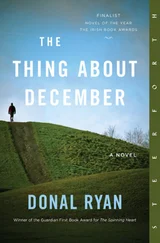Marah Ryan - The Bondwoman
Здесь есть возможность читать онлайн «Marah Ryan - The Bondwoman» — ознакомительный отрывок электронной книги совершенно бесплатно, а после прочтения отрывка купить полную версию. В некоторых случаях можно слушать аудио, скачать через торрент в формате fb2 и присутствует краткое содержание. Жанр: foreign_prose, на английском языке. Описание произведения, (предисловие) а так же отзывы посетителей доступны на портале библиотеки ЛибКат.
- Название:The Bondwoman
- Автор:
- Жанр:
- Год:неизвестен
- ISBN:нет данных
- Рейтинг книги:3 / 5. Голосов: 1
-
Избранное:Добавить в избранное
- Отзывы:
-
Ваша оценка:
- 60
- 1
- 2
- 3
- 4
- 5
The Bondwoman: краткое содержание, описание и аннотация
Предлагаем к чтению аннотацию, описание, краткое содержание или предисловие (зависит от того, что написал сам автор книги «The Bondwoman»). Если вы не нашли необходимую информацию о книге — напишите в комментариях, мы постараемся отыскать её.
The Bondwoman — читать онлайн ознакомительный отрывок
Ниже представлен текст книги, разбитый по страницам. Система сохранения места последней прочитанной страницы, позволяет с удобством читать онлайн бесплатно книгу «The Bondwoman», без необходимости каждый раз заново искать на чём Вы остановились. Поставьте закладку, и сможете в любой момент перейти на страницу, на которой закончили чтение.
Интервал:
Закладка:
She told herself all this, and much more; the task occupied so much of her time that she forgot to go asleep that night, and she saw the morning star shine out of the blue haze beyond the city, and it belonged to a dawn with a meaning entirely its own. Never before or after was a daybreak so beautiful. The sun wheeled royally into view through the atmosphere of her first veritable love romance.
CHAPTER VI
Even the card of Lieutenant McVeigh could not annoy her that morning. He came with some message to the dowager from his mother. At any other time the sound of his name would have made a discord for her. The prejudices of Judithe were so decided, and so independent of all accepted social rules, that the dowager hoped when she did choose a husband he would prove a diplomat–they would need one in the family.
“Madame Blanc, will you receive the gentleman?” she asked. “Maman has not yet left her room, and I am engaged.”
And for the second time the American made his exit from the Caron establishment without having seen the woman his friends raved about. Descending the steps he remembered the old saw that a third attempt carried a charm with it. He smiled, and the smile suggested that there would be a third attempt.
The Marquise looked at the card he left, and her smile had not so much that was pleasant in it.
“Maman, my conjecture was right,” she remarked as she entered the room of the dowager; “your fine, manly American was really the youth of my Carolina story.”
“Carolina story?” and the dowager looked bewildered for a moment; when one has reached the age of eighty years the memory fails for the things of today; only the affairs of long ago retain distinctness.
“Exactly; the man for whom Rhoda Larue was educated, and of whom you forbade me to speak–the man who bought her from Matthew Loring, of Loringwood, Carolina.”
“You are certain?”
“Here is the name, Kenneth McVeigh. It is not likely there are two Kenneth McVeighs in the same region. How small the world is after all! I used to fancy the width of the ocean was as a barrier between two worlds, yet it has not prevented these people from crossing, and coming to our door!”
She sank into a seat, the card still in her hand.
“Judithe,” said the dowager, after watching her moody face thoughtfully, “my child, I should be happier if you banished, so far as possible, that story from your memory. It will have a tendency to narrow your views. You will always have a prejudice against a class for the wrong done by an individual. Put it aside! It is a question outside of your life, outside of it always unless your sympathies persist in dragging you into such far-away abuses. We have the Paris poor, if you must think and do battle for the unfortunate. And as to the American, consider. He must have been very young, perhaps was influenced by older heads. He may not have realized–”
The Marquise smiled, but shook her head. “You are eloquent, Maman, but you do not convince me. He must be very handsome to have won you so completely in one interview. For me, I do not believe in his ignorance of the evil nor in his youthful innocence. I think of the women who for generations have been the victims of such innocence, and I should like to see your handsome young cadet suffer for his share of it!”
“Tah!” and the dowager put out her hand with a gesture of protest and a tone of doubt in her voice. “You say so Judithe, but you could not see any one suffer, not even the criminal. You would come to his defense with some philosophical reason for the sin–some theory of pre-natal influence to account for his depravity. Collectively you condemn them; individually you would pardon every one rather than see them suffer–I mean, than stand by and actually see the suffering.”
“I could not pardon that man,” insisted the Marquise; “Ugh! I feel as if for him I could have the hand of Judithe as well as the name.”
“And treat him a-la-Holofernes? My child, sometimes I dislike that name of Judithe for you; I do not want you to have a shadow of the character it suggests. I shall regret the name if it carries such dark influences with it. As for the man–forget him!”
“With all my heart, if he keeps out of my way,” agreed the Marquise; “but if the old Jewish god of battles ever delivers him into my hands–!” She paused and drew a deep breath.
“Well?”
“Well–I should show him mercy such as the vaunted law-giver, the chosen of the Lord, the man of meekness, showed to the conquered Midianites–no more!” and her laugh had less of music in it than usual. “I instinctively hate the man, Kenneth McVeigh–Kenneth McVeigh!–even the name is abhorrent since the day I heard of that awful barter and sale. It seems strange, Maman, does it not, when I never saw him in my life–never expected to hear his name again–that it is to our house he has found his way in Paris; to our house, where an unknown woman abhors him. Ah!” and she flung the card from her. “You are right, Maman; I am too often conquered by my own moods and feelings. The American need be nothing to us.”
The dowager was pleased when the subject was dropped. She had seen so many battles fought, in theory, by humanitarians who are alive to the injustice of the world. But her day was over for race questions and creeds. Judithe was inspiring in her sympathies, but the questions that breathe living flame for us at twenty years, have burned into dead ashes at eighty.
“Tah! I would rather she would marry and let me see her children,” she grumbled to Madame Blanc; “if she does not, I trust her to your care when I am gone. She is different since we reached Paris–different, gayer, and less of the student.”
“But no more in touch with society,” remarked the attentive companion; “she accepts no invitations, and goes only to the galleries and theatres.”
“Um!–pictured people, and artificial people! Both have a tendency to make her an idealist instead of a realist.”
To Dumaresque she made the same remark, and suggested he should help find attractions for her in real life.
“She is too imaginative, and I do not want her to be of the romantic women; the craze for romance in life is what fills the columns of the journals with new scandals each month.”
“Madame Judithe is safe from that sort of romance,” declared her god-son. “Yet with her face and those glorious eyes one should allow her some flights in the land of the ideal. She suggests all old Italy at times, but she has never mentioned her family to me.”
“Because it was a topic which both Alain and I forbade her, when she was younger, to discuss. Naturally, she has not a joyous temperament and memories of her childhood can only have an unhappy effect, which accounts for our decision of the matter. Her father died before she could remember him, and the mother, who was of Greek blood, not long after. A relative who arranged affairs left the daughter penniless. At the little chateau Levigne she was of great service to me when she was but sixteen. Madam Blanc, who tried to reach me in time, declares the child saved my life. It was a dog–a mad one. I was on the lawn when he broke through the hedge, snapped Alain’s mastiff, Ponto, and came straight for me. I was paralyzed with terror; then, just as he leaped at me, the child swung a heavy chair over her head. Tah! She looked like a young tigress. The dog was struck helpless, his back broken. The gardener came and killed him, and Ponto, too, was killed, when he showed that the bite had given him the poison. Ah, it was terrible, that day. Then I wrote Alain and we decided she should never leave us. I made over to her the income of the little Lavigne estate, thus her education was carried on, and when we went to Rome–well, Alain was not satisfied until he could do even more for her.”
Читать дальшеИнтервал:
Закладка:
Похожие книги на «The Bondwoman»
Представляем Вашему вниманию похожие книги на «The Bondwoman» списком для выбора. Мы отобрали схожую по названию и смыслу литературу в надежде предоставить читателям больше вариантов отыскать новые, интересные, ещё непрочитанные произведения.
Обсуждение, отзывы о книге «The Bondwoman» и просто собственные мнения читателей. Оставьте ваши комментарии, напишите, что Вы думаете о произведении, его смысле или главных героях. Укажите что конкретно понравилось, а что нет, и почему Вы так считаете.












